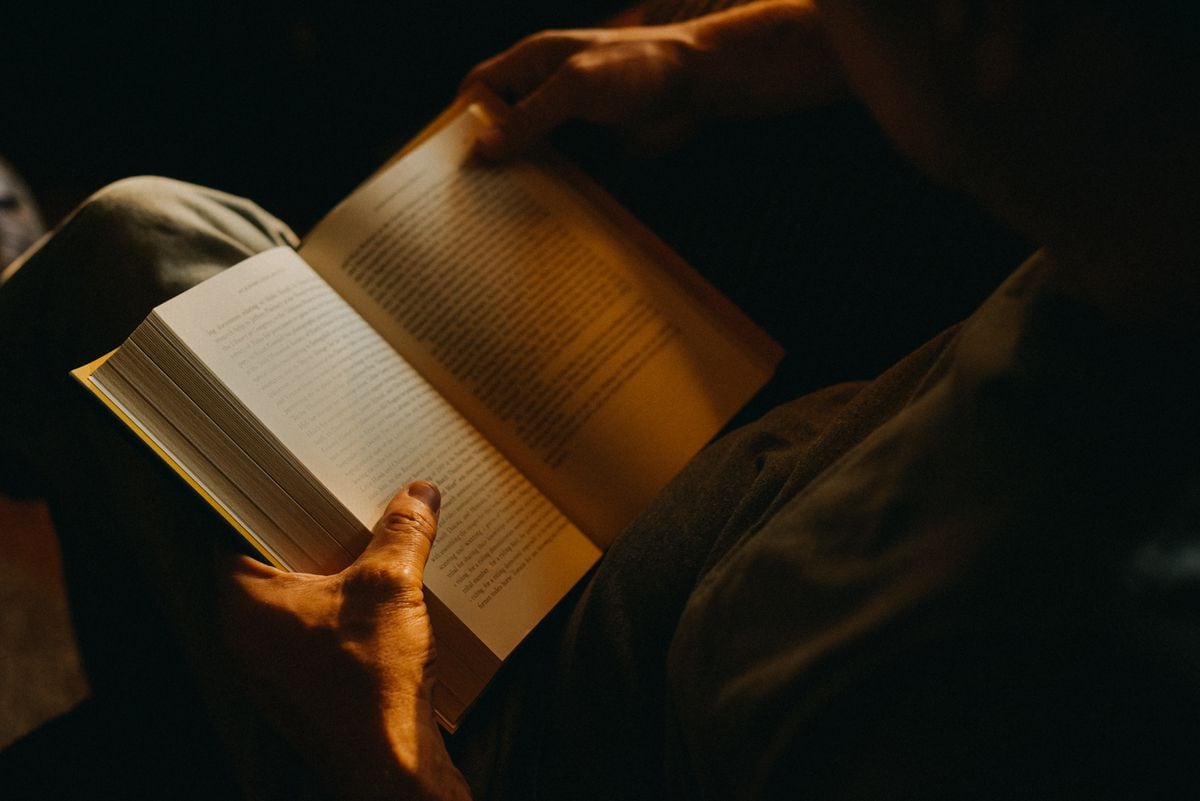I stopped seeing him long before I went into exile and I've lost his address.
hasn't cleared my doubts, so if he's not dead, he must be in his eighties by now.
And if he reads this piece or someone comments on it, Toby will not stop contacting me.
The imperfect past tense—“copreterite”, according to Don Andrés Bello—does not seem inappropriate to me when writing what I remember.
Chapman was a writer by trade.
Strictly speaking, he was a television writer, the same as I was at the time.
He had written several books that, I never knew why, he called “guayabos”.
He honored me with the trust of giving me some to read.
You don't have to believe me when I say they are great novels of international intrigue.
As far as I know, they remain unpublished, although everything tells me that they won't be forever.
More than novels, they are what the Anglo-Saxons called
long short stories
: stories of no more than 30,000 words that all take place in Europe between the wars.
The plot was the crazy conspiracies of the selfless and deluded Venezuelan exile during the dictatorship of General Juan Vicente Gómez.
The character around whom all the others pivoted was a super-millionaire, former owner of one of the colossal oil concessions that founded the great Venezuelan fortunes of a century ago.
A petulant Creole type who had a mansion in Belgravia, a villa in Nice and, in Paris, stayed in a grand hotel.
Chapman named him Mariani in homage to one of the most obscene corrupt officials of the time immediately before Hugo Chávez.
The protagonist is called Eugenia Alonso and she was a copy (the appropriation of another's plot, too) of Teresa de La Parra, a very beautiful and refined woman, a famous novelist from Caracas and cosmopolitan, apparently very rich (in reality, from a
Mantuan
family who came from
unless) that, in the company of his girlfriend, Lydia Cabral, an insightful Cuban ethnologist and wealthy sugar heiress in the times of Gerardo Machado, travel Europe in luxurious litter trains, from Cap d'Antibes to Hamburg, encouraging armed expeditions against the tyrant Gomez.
Chapman did not travel much and, as far as I know, never left Venezuela, but interwar Europe played the same role in his novels as the Eastern Mediterranean in those of Eric Ambler, considered by many to be the remote predecessor of John Le Carré.
Each Chapman guava recounts a complex operation of buying weapons, building a ship, recruiting and training volunteers;
in short, a matter of financiers, dreamers and mercenaries… And spies of the dictatorship.
Opera evenings, diplomatic receptions, and "meetings with notable men" abound in Eugenia's life, the likes of Paul Valéry, Reynaldo Hahn, and George Gurdjieff himself.
That literary constellation fed nine novels —nine guayabos— by Chapman.
After reading a couple of them, playwright and screenwriter José Ignacio Cabrujas invited Chapman to dinner at his house one night in 1982.
The conversation they had that night imbued in Cabrujas, over time, the idea of merging the world of the protagonist of Chapman's guava trees in the framework of
The Count of Monte Cristo,
transfigured into an Edmundo Dantes of Venezuela in 1934. It was a extremely successful telenovela—
La
Dueña—
,
something that always provided Chapman, who did not want to be part of the project, a very intimate satisfaction.
The last guava of Eugenia Alonso's saga was titled
El leño y la llama
, and in it, Eugenia finally manages to unmask Gómez's informant infiltrated among the conspirators.
Mysteriously and impenetrably, each expedition has been defeated by the tyrant Gómez and everything ends with deaths and prisoners.
The plot of intrigue is wrapped in the love triangle between Eugenia, Lydia and a Central American suitor.
In the last installment of the series, the action travels to the Mexico of Plutarco Elías Calles, where Mariani manages to arm a ship with weapons and recruit, under deceit, laborers from a chiclera hacienda in Yucatán to take them to be machine-gunned on a beach in western Mexico. Venezuela like in a Sam Peckinpah movie.
The episode is loosely based on a true event: the failed
Superior
ship raid in 1931.
Meanwhile, in Geneva, Eugenia harshly confronts Gastón De Isard, a consular officer of the Venezuelan dictatorship.
De Isard passes for being an apolitical and faded symbolist poet and with that claim he has managed to blend into Mariani's shoal of flattering exiles.
Venezuelan exiles are reckless and tell everything without taking care of the devious vice-consul.
Finding himself discovered, the poet kills himself with a dose of laudanum for horses that he has been prescribed to overcome his uncontrollable insomnia.
Remembering Toby Chapman it occurs to me that his fictional exiles, with everything and his failures, look much more consistent, dashing and imaginative than today's Venezuelan politicians.
I almost forgot to say that, in Venezuela, the word
guayabo
colloquially names not only the hangover from alcohol, as in Colombia, but also lovesickness.
Subscribe here to the EL PAÍS América
newsletter
and receive all the key information on current affairs in the region

